The Oligarchs (56 page)
Authors: David Hoffman

The publication triggered an angry reaction by both governments. The Russians lodged an official protest with the U.S. embassy, mortified not by Graham's conclusions but by his public candor. Back at the State Department, Graham's essay hit like a thunderclap because of the unspoken message that the Clinton focus on Yeltsin and the young reformers was misguided, that other power brokers were rising, and that they were not necessarily committed to Western-style democracy. It was not the message the U.S. government wanted to hear. Graham told me he braced himself for trouble in Moscow after the dustup over his article, fearing that Russian sources would stop talking to him.
Instead, the opposite happened. The tycoons did not flinch from the image Graham had described. Vitaly Tretyakov, editor of
Nezavisimaya Gazeta,
who had published the article, gave a copy of it to Berezovsky, who liked it so much he invited Graham for a chat at the Logovaz Club.
49
Nezavisimaya Gazeta,
who had published the article, gave a copy of it to Berezovsky, who liked it so much he invited Graham for a chat at the Logovaz Club.
49
Â
At the end of December 1995, the magnates of Russia had reached a turning point. Potanin, Khodorkovsky, and Berezovsky had pocketed their first keys to industry, as the loans for shares auctions came to an end. Gusinsky had returned to Moscow over the summer.
50
Gusinsky was expanding his media empire.
50
Gusinsky was expanding his media empire.
Meanwhile, the political mood in the country was grim. In the parliamentary elections, the Communists won the largest single bloc of seats in the next Duma. Their leader, Zyuganov, was well positioned to run for president the next summer. In January, the Chechen war spilled over into neighboring Dagestan in a terrible, bloody battle between Russian troops and a small band of Chechen separatists holed up in a border village, Pervomaiskoye. Inside the Kremlin, Yeltsin was in the grip of the reactionary Korzhakov and his “party of war.” Then on January 16, Yeltsin abruptly fired Chubais from his post as deputy prime minister. Chubais had weathered more than four years in the cockpit of privatization and economic reform, but he had become a hated symbol of all the tumult and pain Russians had endured. “He sold off big industry for next to nothing,” Yeltsin told reporters. “We cannot forgive this.”
But Chubais would soon be back because the embrace of wealth and power had just begun. The tycoons had taken their share of property, but soon they would be called on to return the favor. They would be asked to help their troubled patron, Boris Yeltsin, and once again help themselves.

BORIS BEREZOVKSY
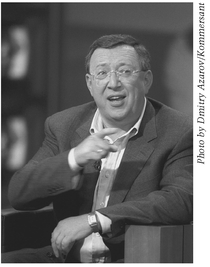
VLADIMIR GUSINSKY
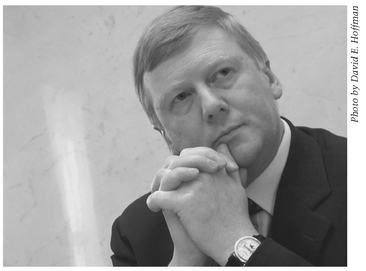
ANATOLY CHUBAIS
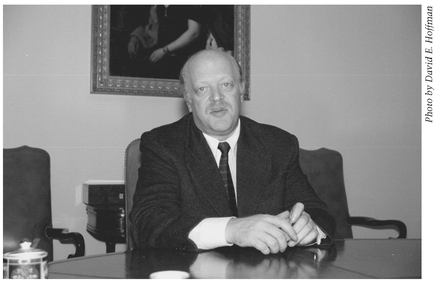
ALEXANDER SMOLENSKY
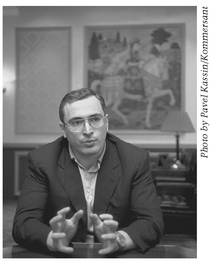
MIKHAIL KHODORKOVSKY
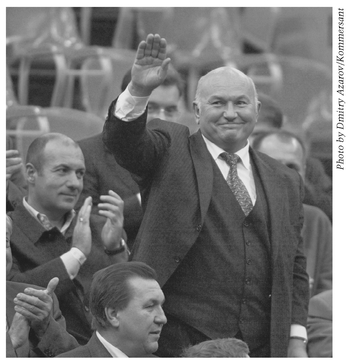
YURI LUZHKOV
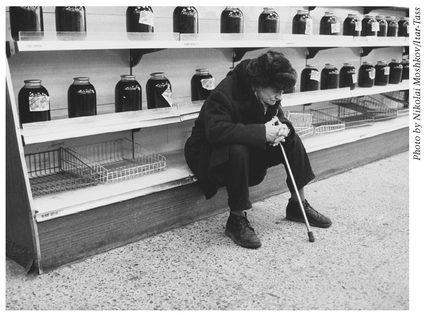
THE SHORTAGE ECONOMY: A STORE IN NIZHNY NOVGOROD, 1991.
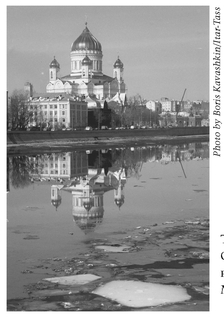
THE CATHEDRAL OF CHRIST THE SAVIOUR, REFLECTED IN THE MOSCOW RIVER.
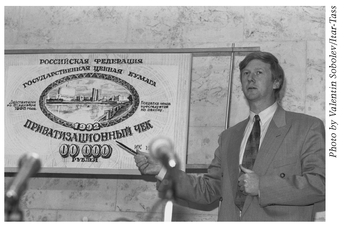
CHUBAIS INTRODUCES THE PRIVATIZATION VOUCHER IN 1992.

THE PRIVATIZATION VOUCHER

BUYING AND SELLING MMM SHARES IN MOSCOW, 1994
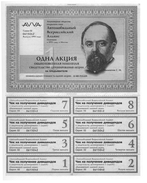
Other books
Judge Surra by Andrea Camilleri, Joseph Farrell
Embrace My Reflection by T. A. Chase
All for a Song by Allison Pittman
The Regent's Daughter: (Georgian Series) by Jean Plaidy
Lorie's Heart by Amy Lillard
Lady Fugitive by Biondine, Shannah
Halfway Hidden by Carrie Elks
Heather Graham by Down in New Orleans
A Song for Summer by Eva Ibbotson
ROMANCE: Bear Naked Passion (Billionaire Bear Trio Book 2) by Audrey Storm
